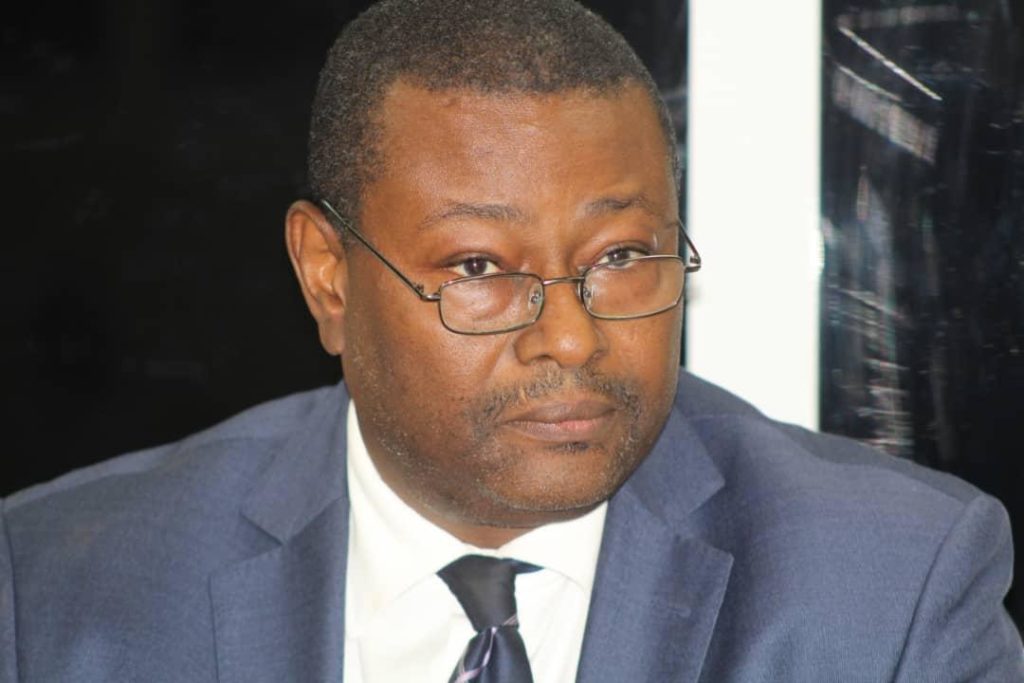NHRC Chair Says Justice Must Be Accessible, Affordable, Dispensed In Time

By Landing Ceesay
The Chairman of the National Human Rights of the Gambia Hon. Emmanuel Daniel Joof has said that Justice must be accessible, affordable, and dispensed in a timely manner.
“Access to justice, as I’ve said it’s not only about building courts or having the structures or having great laws which we have in our books, even ratifying convention and treaties, which supports access to justice. Justice must be accessible. Justice must be affordable. Justice must be dispensed in a timely manner and those aggrieved must be provided with appropriate and adequate red dress.
“Justice is not cheap and the delivery of justice should be impartial and nondiscriminating, and the State which has the primary duty to respect, protect and fulfill the fundamental rights to access to justice should therefore take all the necessary steps to provide fair, transparent, effective and accountable services that promote access to justice for all,” Chairman Joof said.
The NHRC Chairman made these remarks at the opening ceremony of a two-day conference under the theme “guaranteeing equal access to justice for all and promoting accountability.”
In November 2022, the NHRC organized a similar conference where participants prepared a resolution on human rights issues.
Chairman Joof, said access to justice is a fundamental principle of the rule of law and the cornerstone of justice for a stable society.
Chairman Joof further told the participants that in the absence of access to justice, people are unable to have their voices heard, exercise their rights, challenge discrimination, and are all decision-makers accountable.
“It is a fair assumption to say that rule of law is meaningless unless there is access to justice for everybody, especially the poor and marginalized. It is not just enough to say that we have appropriate laws or that we have filth, rule of law instead situations such as courts, police stations, prisons, or that we have ADRs we have Office of the National Agency for legal aid, or the office of ombudsman or even the National Human Rights Commission and assume that we have access to justice. Just having those institutions is not enough,” he said.
Chairman Joof also points fingers at the insurgence of land disputes in the country especially in the Greater Banjul Area.
“In the Gambia and in some areas, especially, in Kombo South, disputes involving land are on the increase, is a major source of conflict and it is a ticking time bomb. The Faraba Bantang Incident which led to riots, loss of lives, and destruction of properties in 2018 was not only a cause for concern at the time, but it is still a red flag for what is to come in matters relating to access to justice, relating to land rights are not addressed adequately.
“Today we have powerful Alkalos. We have chiefs, there are mining companies, their estate agents, and powerful people in our communities who have been appropriating land belonging to individuals, communities, and women Kafos, and more often none of those affected do not have access to justice, and appropriate legal rights,” Chairman Joof told the participants.
Chairman Joof said the UN recognizes that access to justice is a vital part of development and then without it, people who live in poverty can be left behind without a voice.
Chairman Joof further stated that that is why the UN 2020-2030 Agenda for Sustainable Development calls for equal access to justice for all.
“The question we need to ask is Does everybody have access to justice? Are the rights for example of detainees respected as it involves their rights when they are arrested or detained? Do detainees and those going through the criminal justice system have the right to bail? The accused persons and litigants in general have access to affordable legal representation.
“Do accuse persons understand the charges leveled against them? Do litigants, and aggrieved persons in general know where and how to access justice? Are the police adequately trained and equipped to investigate and prosecute Crimes? Do we have enough judges and magistrates to hear cases? Do we have a well-resourced and robust legal system? I think these are the checklists. These are the things that we need to ask ourselves if we are going to audit the efficiency of the access to justice in our society,” he told the participants.
The NHRC Boss said Access to Justice is not just about access to justice. He said for criminal matters, it is important because in criminal matters the liberty of the individual is at stake.
“A society which feels that their grievances are adequately redressed is a society that will not be prone to conflict. A well-established legal institution that is well-resourced, both in staffing with good remuneration, a good staff package, which is also provided with the right tools and equipment, an enabling environment, and the requisite structures and programs are crucial for efficient and effective access to justice,” he said.

